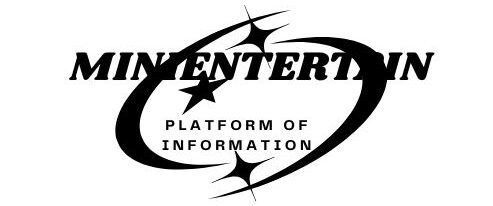
How Eating Eggs Can Control Our Fitness? Eggs are often referred to as a superfood, and for good reason. These versatile ingredients are packed with essential nutrients that can significantly enhance your fitness regimen. Whether you’re an athlete, a casual gym-goer, or simply someone looking to maintain a healthy lifestyle, incorporating eggs into your diet can provide numerous benefits.
One of the most significant advantages of eggs is their high protein content. Each large egg contains about 6 grams of protein, which is essential for muscle repair and growth. Consuming protein after workouts helps your muscles recover more effectively, enabling you to train harder and achieve better results. The amino acids found in eggs play a crucial role in building and repairing muscle tissue, making them an excellent post-exercise option.
In addition to protein, eggs are rich in vitamins and minerals. They provide vital nutrients such as vitamin B12, which is essential for energy production, and choline, which supports brain health and cognitive function. This nutrient-dense profile not only helps fuel your workouts but also supports overall well-being.
Eggs also contribute to weight management. The combination of protein and healthy fats found in eggs promotes feelings of fullness, reducing the likelihood of overeating or unhealthy snacking. This can be particularly beneficial for those aiming to lose weight or maintain a healthy diet.
Furthermore, eggs are incredibly versatile and can be prepared in numerous ways—boiled, scrambled, poached, or as an omelet—making them easy to incorporate into any meal.
In summary, the fitness benefits of eggs are undeniable. From their high-quality protein to essential vitamins and minerals, eggs can support muscle growth, enhance energy levels, and aid in weight management. So, whether you’re looking to build strength or maintain a healthy lifestyle, adding eggs to your diet is a smart choice. In this article, we will explore the various ways eggs contribute to our fitness, backed by nutritional insights and practical applications.
Table of Contents
1. Nutritional Profile of Eggs

Eggs are often regarded as one of the most nutritious foods available, making them a staple in diets around the world. Packed with essential nutrients, they offer a wide range of health benefits that can support overall well-being. Understanding the nutritional profile of eggs can help you appreciate their role in a balanced diet.
A large egg typically contains about 70 calories, making it a low-calorie food option. One of the standout features of eggs is their high-quality protein content, with approximately 6 grams per egg. This protein is complete, meaning it contains all nine essential amino acids necessary for muscle repair, growth, and overall body function.
In addition to protein, eggs are rich in essential vitamins and minerals. They provide significant amounts of vitamin B12, which is crucial for energy production and red blood cell formation. Eggs also contain riboflavin (B2) and folate, both important for maintaining healthy metabolism and cell function.
Furthermore, eggs are an excellent source of choline, a nutrient vital for brain health and development. Choline supports memory and cognitive function, making eggs beneficial for overall brain health.
The healthy fats found in eggs, particularly in the yolk, contribute to heart health. While eggs do contain cholesterol, research indicates that moderate consumption does not significantly impact heart disease risk for most people.
Moreover, eggs are also a source of antioxidants, such as lutein and zeaxanthin, which are important for eye health. These compounds can help reduce the risk of age-related macular degeneration.
| Nutrient | Amount (per large egg) | Role in Fitness |
|---|---|---|
| Protein | 6 grams | Essential for muscle repair and growth |
| Healthy Fats | 5 grams | Provides energy and supports cell health |
| Vitamin B12 | 0.6 mcg | Vital for energy production |
| Vitamin D | 41 IU | Supports bone health and immune function |
| Choline | 147 mg | Important for brain health |
| Selenium | 15.4 mcg | Antioxidant that protects cells |
| Riboflavin | 0.2 mg | Helps convert food into energy |
This impressive array of nutrients makes eggs a powerhouse food that can significantly enhance your fitness routine.
Benefits of Key Nutrients
- Protein: High-quality protein helps in muscle recovery and growth, especially post-workout.
- Healthy Fats: The unsaturated fats in eggs contribute to long-lasting energy, crucial for endurance training.
- Vitamins and Minerals: Essential vitamins like B12 and D play roles in energy metabolism and maintaining bone density, which is important for overall fitness.
2. Muscle Building and Repair

Eggs are a powerhouse food when it comes to muscle building and repair, making them an essential addition to any fitness regimen. Rich in high-quality protein, each egg contains about 6 grams of protein, which includes all nine essential amino acids necessary for muscle recovery and growth. This complete protein is crucial after intense workouts, as it helps repair the tiny tears in muscle fibers caused by resistance training.
In addition to protein, eggs are a great source of important vitamins and minerals, including B vitamins like B12 and riboflavin, which support energy production and metabolic function. The yolk contains healthy fats that help maintain hormone balance, further promoting muscle growth.
Moreover, eggs provide choline, a nutrient that supports muscle function and overall cellular health. The combination of protein, healthy fats, and essential nutrients in eggs makes them a versatile food choice for anyone looking to enhance their fitness.
Whether boiled, scrambled, or made into an omelet, eggs are not only delicious but also a simple and effective way to support muscle building and repair. Incorporating eggs into your post-workout meal can help you achieve your fitness goals more efficiently.
The Role of Protein in Fitness
When you engage in physical activities, especially resistance training, your muscles experience micro-tears. Consuming protein post-workout helps repair these tears, promoting muscle hypertrophy (growth). A study published in the American Journal of Clinical Nutrition highlights that consuming protein within 30 minutes after exercise can enhance muscle repair and growth significantly.
How to Incorporate Eggs for Muscle Building
- Post-Workout Omelet: Combine eggs with vegetables and lean meats for a nutritious post-workout meal.
- Egg Protein Shakes: Blend eggs into smoothies for a protein boost, ensuring they are pasteurized for safety.
- Egg Salad: A protein-rich salad can be a great option for lunch or a snack.
3. Weight Management and Satiety

Eggs are often celebrated as a nutritional powerhouse, and their role in weight management is particularly noteworthy. With their rich protein content and essential nutrients, eggs can be a valuable addition to any diet aimed at achieving or maintaining a healthy weight. One of the key benefits of consuming eggs is their ability to promote satiety, which helps curb hunger and reduce overall calorie intake.
A large egg contains about 6 grams of high-quality protein, which is known to increase feelings of fullness more effectively than carbohydrates or fats. This satiety effect can lead to reduced snacking and better portion control during meals. Additionally, the healthy fats found in eggs contribute to a prolonged sense of fullness, making it easier to resist unhealthy food choices.
Incorporating eggs into breakfast or other meals can kick-start your day and help you manage cravings throughout the day. Whether scrambled, poached or in an omelet, eggs offer a versatile and satisfying option that can support your weight management goals while providing essential nutrients. Understanding how eggs can enhance satiety is a key step in making informed dietary choices for a healthier lifestyle
The Science Behind Satiety
The high protein content in eggs helps stabilize blood sugar levels, reducing cravings and preventing overeating. A study in the Journal of the American College of Nutrition found that participants who consumed eggs for breakfast consumed fewer calories at subsequent meals compared to those who had a bagel.
Practical Ways to Use Eggs for Weight Management
- Egg-Based Breakfasts: Start your day with a protein-rich breakfast such as scrambled eggs or an egg frittata.
- Snack Alternatives: Instead of reaching for high-calorie snacks, opt for hard-boiled eggs, which are portable and nutrient-dense.
- Incorporate in Salads: Adding boiled eggs to salads increases the protein content, making the meal more filling.
4. Versatile Meal Options

Versatile Meal Options Featuring Eggs: Poached, Scrambled, Shakshuka, and Muffins
Eggs are a staple in kitchens around the world, celebrated for their versatility, nutritional value, and ease of preparation. From breakfast to dinner, eggs can be transformed into a myriad of delicious dishes. Let’s explore some versatile meal options featuring eggs, including poached eggs, scrambled eggs, shakshuka, and egg muffins.
Poached Eggs: A Perfect Start
Poached eggs are a classic choice that can elevate any meal. Cooking eggs in simmering water creates a delicate texture and a runny yolk that is both satisfying and nutritious. Poached eggs are often served atop toast, making them a delightful addition to breakfast. For a twist, try poaching eggs and serving them over sautéed greens like spinach or kale, drizzled with a little olive oil and lemon juice.
Another popular dish is Eggs Benedict, where poached eggs are placed on English muffins, topped with Canadian bacon, and drizzled with hollandaise sauce. This indulgent breakfast not only tastes amazing but also provides a good balance of protein and healthy fats.
Scrambled Eggs: Simple and Customizable
Scrambled eggs are a quick and easy option for any meal. They are incredibly versatile and can be customized to suit your taste. The basic recipe involves whisking eggs and cooking them gently in a non-stick skillet, stirring frequently until just set.
You can enhance scrambled eggs by adding ingredients such as cheese, herbs, vegetables, or meats. For instance, a simple addition of diced tomatoes, spinach, and feta cheese can turn plain scrambled eggs into a Mediterranean delight. Alternatively, mixing in cooked sausage or bacon gives a hearty flavor that makes for a filling breakfast or brunch.
Shakshuka: A Flavorful Middle Eastern Dish
Shakshuka is a vibrant Middle Eastern dish that has gained popularity for its bold flavors and satisfying nature. This one-pan meal consists of poached eggs nestled in a rich, spiced tomato sauce, often flavored with bell peppers, onions, and garlic. The sauce is seasoned with spices like cumin and paprika, adding depth and warmth.
To make shakshuka, start by sautéing onions and peppers in a skillet, then add crushed tomatoes and spices. Create wells in the sauce for the eggs, cover, and simmer until the eggs are cooked to your liking. Serve this dish with crusty bread for dipping, making it a perfect brunch option or a comforting dinner.
Egg Muffins: A Portable Delight
Egg muffins are an excellent meal prep option that allows you to enjoy eggs on the go. These mini frittatas are made by whisking eggs and mixing in your choice of vegetables, cheese, and proteins. Simply pour the mixture into a muffin tin and bake until set.
Egg muffins are incredibly versatile; you can use ingredients like spinach, bell peppers, cheese, diced ham, or even leftover roasted vegetables. They are easy to customize based on your preferences or dietary needs. Plus, they store well in the refrigerator, making them perfect for quick breakfasts or snacks throughout the week.
Meal Planning with Eggs
Incorporating eggs into your meal prep can save time and enhance nutrition. Preparing a variety of egg-based dishes at the beginning of the week ensures that you always have healthy options ready to go.
5. Overall Health Benefits of How Eating Eggs Can Control Our Fitness
In addition to their direct contributions to fitness, eggs offer numerous health benefits that support a well-rounded lifestyle.
Heart Health

Eggs are often misunderstood when it comes to heart health, but they can actually be a beneficial part of a balanced diet. Rich in high-quality protein, eggs provide essential nutrients that support overall cardiovascular health. One of the key components in eggs is healthy fats, particularly monounsaturated and polyunsaturated fats, which can help improve cholesterol levels when consumed in moderation.
Research indicates that consuming eggs does not significantly impact cholesterol levels for most people. In fact, eggs can raise levels of high-density lipoprotein (HDL), known as “good” cholesterol, which plays a protective role against heart disease. Additionally, eggs contain important nutrients such as vitamin B12 and folate, which are essential for maintaining a healthy heart.
The antioxidants found in egg yolks, including lutein and zeaxanthin, may also contribute to heart health by reducing inflammation and oxidative stress. By incorporating eggs into a balanced diet alongside fruits, vegetables, and whole grains, you can enjoy their nutritional benefits while supporting cardiovascular health. Thus, eggs can be a heart-healthy choice when consumed as part of an overall nutritious diet.
Brain Function

Eggs are not just a delicious and versatile food; they also offer significant benefits for brain function. One of the key nutrients found in eggs is choline, an essential compound that supports cognitive health. Choline is vital for the production of acetylcholine, a neurotransmitter that plays a crucial role in memory, mood, and muscle control. Adequate choline intake has been linked to improved cognitive performance and may help reduce the risk of cognitive decline as we age.
In addition to choline, eggs are rich in B vitamins, particularly vitamin B12 and folate, which are important for brain health. These vitamins help produce neurotransmitters and support overall brain function. Furthermore, the protein found in eggs provides amino acids necessary for the synthesis of these neurotransmitters, contributing to improved focus and mental clarity.
Eggs also contain antioxidants like lutein and zeaxanthin, which may help protect brain cells from oxidative stress and inflammation. By incorporating eggs into your diet, you can enjoy their rich nutritional profile while supporting optimal brain function, making them a smart choice for anyone looking to enhance their cognitive health.
Eye Health

Eggs are not only a versatile and nutritious food but also a valuable ally for eye health. One of the key components of eggs that support vision is their high content of lutein and zeaxanthin, two powerful antioxidants found primarily in the yolk. These carotenoids play a crucial role in protecting the eyes from harmful blue light and reducing the risk of age-related macular degeneration (AMD) and cataracts.
Lutein and zeaxanthin help filter out blue light, which can cause oxidative stress to the retina. By incorporating eggs into your diet, you can increase your intake of these protective compounds. In addition to antioxidants, eggs are rich in vitamin A, another essential nutrient for eye health. Vitamin A helps maintain proper vision and is vital for the function of the retina.
Furthermore, eggs provide a good source of zinc, which is important for overall eye health and helps transport vitamin A from the liver to the retina. Including eggs in your diet not only offers delicious meal options but also supports long-term eye health, making them a smart choice for anyone looking to protect their vision.
Conclusion
Eggs are a multifaceted food that can significantly impact our fitness and overall health. Their rich nutritional profile supports muscle building and weight management and provides essential vitamins and minerals that enhance bodily functions. Eggs’ versatility means they can easily fit into any diet, making them a convenient choice for anyone looking to optimize their fitness routine.
Eating eggs satisfies your nutritional needs and adds variety and flavor. Whether you’re an athlete looking to improve performance, someone trying to manage weight, or simply seeking to maintain a healthy lifestyle, eggs can be a valuable addition to your diet. So crack open some eggs and see How Eating Eggs Can Control Our Fitness

